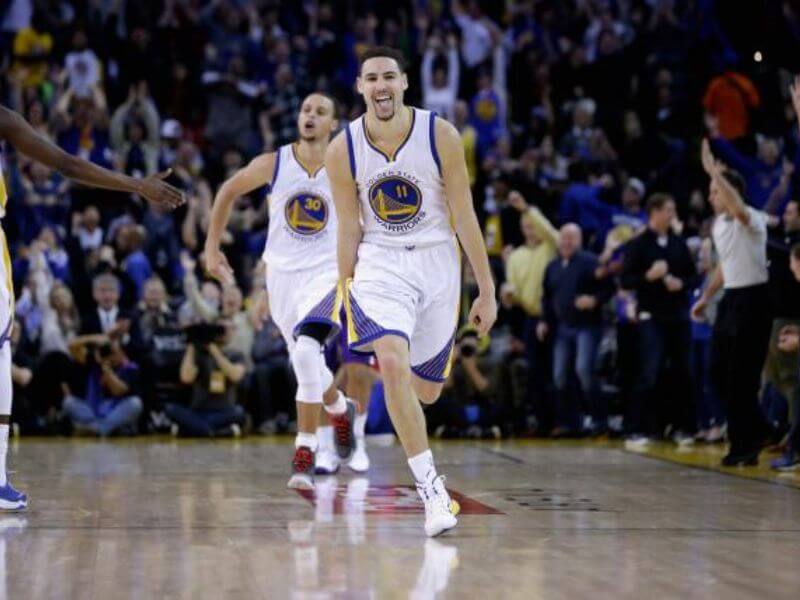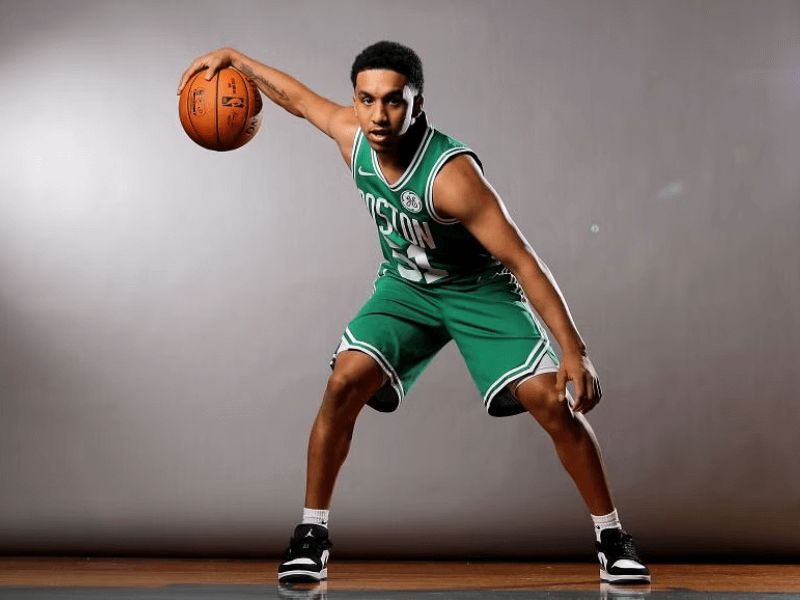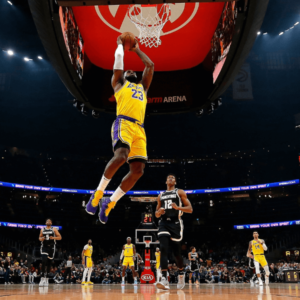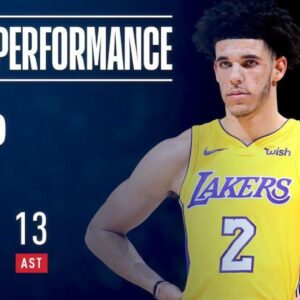Who owns the nba? The world of NBA team ownership is a fascinating landscape, where billionaires and sports legends alike shape the future of their franchises and the league itself. Behind every slam dunk and game-winning three-pointer, there’s an owner whose decisions and vision have helped create those unforgettable moments.
But who really owns the NBA in 2023? This blog post will take you on a journey through the organizational structure of the league, the power and influence of team owners, the process of becoming an owner, and the evolving relationship between owners and players, all while answering the question: who owns the NBA?
In this exploration, you’ll discover the roles of the Board of Governors and the Commissioner, learn about high-profile and controversial owners, and delve into the recent ownership changes that have impacted teams like the Minnesota Timberwolves and Utah Jazz. So, lace up your sneakers and get ready for an insider’s look at the thrilling world of NBA team ownership, and uncover the answer to “who owns the NBA?”

Key Takeaways
The NBA is governed by a Board of Governors composed of the Commissioner and 30 team owners.
High-profile owners have significant power & influence, while controversial ones can cause debate.
Ownership requires financial resources & dedication, with changes impacting teams’ futures. Relationships between players and owners are strengthened through player empowerment and social causes.
The Structure of the NBA
The National Basketball Association (NBA) is a complex entity, and its structure plays a pivotal role in ensuring the success of its sports teams. The NBA Board, composed of 30 team owners, sits at the heart of the NBA’s organizational structure, making pivotal decisions for the basketball league. These owners collectively hold the reins of power, shaping the rules and regulations that govern the league and its franchises.
Working alongside the Board of Governors is the NBA Commissioner, who oversees the league on behalf of the team owners. The current Commissioner, Adam Silver, has been instrumental in managing the league and ensuring its continued growth and development. Every team in the NBA, from the New York Knicks to the Golden State Warriors, is influenced by the choices made by the Commissioner and the Board of Governors.
Board of Governors
The NBA’s Board of Governors, comprised of team owners, wields significant authority to decide the league’s rules, regulations, and overall trajectory. This governing body represents the interests of franchise owners and ensures that their voices are heard in the decision-making process. The Board of Governors is composed of Commissioner Adam Silver and the 30 team owners and their respective representatives.
The Board of Governors’ influence permeates the entire league, with each team owner contributing significantly to the shaping of the NBA’s landscape. From setting salary caps to determining playoff formats, the Board of Governors helps guide the NBA’s course to ensure its long-term financial success and competitive balance.
The Commissioner
Representing the team owners, the NBA Commissioner plays a central role in managing the league and enforcing its rules. The current Commissioner, Adam Silver, has played a key role in overseeing the operations of successful NBA teams and guiding the league’s growth and development. Selected by the Board of Governors, the Commissioner ensures the smooth functioning of all teams, including high-profile franchises like the Los Angeles Lakers.
The Commissioner, bearing significant responsibility and influence, collaborates intimately with team owners to tackle pressing issues and steer through the intricate world of professional basketball. From negotiating collective bargaining agreements to handling disciplinary matters, the Commissioner plays a crucial role in maintaining the integrity and success of the entire league.
The Power and Influence of NBA Team Owners
NBA team owners wield considerable power and influence over their teams, shaping their franchises’ destinies through their decisions and actions. These high-stakes players in the world of professional basketball come from various backgrounds, with some being high-profile figures and others facing controversy due to their management styles or off-court behavior. Regardless of their public image, team owners are integral to the success of their respective teams and the league as a whole.
The journey to NBA team ownership is often a complex and challenging process, requiring substantial financial resources and a commitment to building a successful franchise. Exploring further into the realm of NBA team owners, unique narratives of high-profile and controversial owners will be uncovered, illuminating their influence on their teams and the league.
High-Profile Owners
In the world of NBA team ownership, there are a few giants who stand above the rest. High-profile owners such as Michael Jordan, Mark Cuban, and Steve Ballmer have used their wealth and influence to shape their respective teams, often becoming household names in the process. For example, basketball legend Michael Jordan became the majority shareholder of the Charlotte Hornets in 2010, owning 97% of the franchise and investing $175 million in the team. He is currently in the process of selling the majority of his ownership and will maintain a minority ownership stake after the completion of the sale.
Similarly, Mark Cuban, the charismatic entrepreneur, and owner of the Dallas Mavericks, has been a driving force behind the team’s success since purchasing them in 2000 for $285 million. Steve Ballmer made headlines when he acquired the Los Angeles Clippers in 2014 for a staggering $2 billion, making him one of the wealthiest and most influential owners in the league.
These eminent owners, who in a sense “own the NBA”, have imprinted their legacy on the league, exemplifying the power and sway that team owners can exert.
Controversial Owners
Not all NBA team owners are universally celebrated. Some have faced criticism for their actions, decisions, or off-court behavior, impacting their teams and the league as a whole. Controversial owners can draw attention to their franchises for all the wrong reasons, often sparking debates about their management styles and the role of ownership in professional sports.
One such example is James Dolan, owner of the New York Knicks, who has been widely criticized for his questionable decisions and lack of leadership skills. Another controversial figure is Jerry Reinsdorf, the owner of the Chicago Bulls for over 30 years, who has had a complex relationship with superstar Michael Jordan and faced scrutiny over his management of the team.
Although these contentious owners may not always enjoy popularity, they undeniably play a significant role in influencing their teams and the entire NBA.

The Journey to NBA Team Ownership
Becoming an NBA team owner is no small feat. Prospective owners must have substantial financial resources and undergo a rigorous approval process to join the exclusive ranks of NBA team ownership. This process ensures that only individuals with the means and dedication to build and maintain a successful franchise can become team owners.
Exploring the path to NBA team ownership, the financial requirements and approval process that potential owners need to work through will be discussed. From demonstrating the necessary financial means to presenting a comprehensive plan for the team’s success, the path to owning an NBA team is both challenging and rewarding.
Financial Requirements
Prospective NBA team owners must be prepared to invest significant financial resources into their franchises. With the average cost of an NBA team estimated at approximately $2.86 billion, owning a professional basketball team is no small investment. In addition to the initial purchase price, team owners must also have the means to support their team’s operations, including player salaries, staff compensation, and facility costs.
It’s important to note that team ownership also comes with potential financial risks. Teams can be exposed to fluctuations in the market, alterations in the league’s rules and regulations, and other factors that can impact the value of the franchise.
In spite of these risks, for those with the financial capability and commitment, owning an NBA team can prove to be an exceptionally rewarding and profitable venture.
Above is information who owns the nba. Hopefully, through the above content, you have a more detailed understanding of who owns the nba .Thank you for reading our post.


